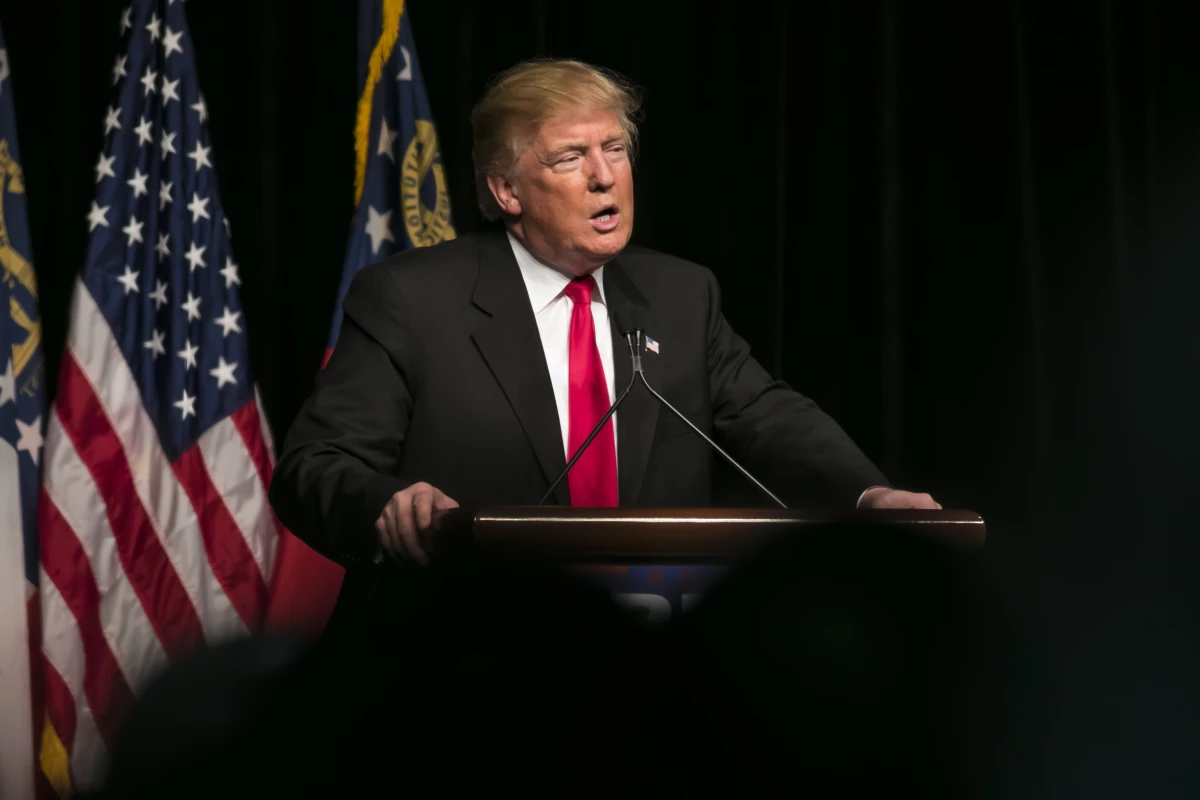On October 8th 2020, Donald Trump returned to the White House after spending several days at the Walter Reed Medical Center receiving a number of treatments for COVID-19. In a video message published on Twitter the President attributed his rapid recovery to a new experimental therapy he called "Regeneron" which he subsequently referred to as a “cure”. What do we know about this new experimental drug? Is it safe? And what does it actually do?
A MESSAGE FROM THE PRESIDENT! pic.twitter.com/uhLIcknAjT
— Donald J. Trump (@realDonaldTrump) October 7, 2020
What is it?
The drug is one of the first COVID-19 specific treatments to be developed. It is called REGN-COV2, and it is produced by pharmaceutical company Regeneron.
It is a monoclonal antibody “cocktail” combining two potent but complimentary lab-engineered antibodies designed to rapidly stop the virus from replicating inside an infected patient.
What is the evidence it works?
REGN-COV2 is still deeply experimental. The only peer-reviewed and published data on the therapy can be found in a pair of journal entries published over the last few months outlining the preclinical results of animal tests.
At the end of September, Regeneron sent out a press release touting the therapy’s efficacy in its initial human trials. This highly curated data release revealed some results from the first 275 people enrolled into Regeneron’s large, double-blind trial.
Compared to a low-dose cohort and a placebo control, the press release suggests a high dose of REGN-COV2 resulted in a statistically significant reduction in virus levels. To date, this is the only publicly available data on the efficacy of REGN-COV2 in humans.
Importantly, this aspect of the REGN-COV2 trial focused on patients with early-stage COVID-19, and not severe cases who have been hospitalized. In September, Oxford University announced it would begin testing the efficacy of REGN-COV2 on hospitalized patient outcomes.
Is it safe?
Considering only a few hundred people have received this experimental therapy to date the broad safety profile of REGN-COV2 is unknown. A number of different monoclonal antibody therapies have been extensively studied over the past few decades, treating cancer and autoimmune disease, so the principles of the therapy are sound.
Regeneron has also developed a similar antiviral antibody cocktail targeting the Ebola virus. Called REGN-EB3, this therapy is a trio of antibodies with clinical trials finding it can safely increase one’s chances of surviving the disease if administered soon after infection.
Nevertheless, REGN-COV2 is still in relatively early stages of human testing and the average age of the ongoing Regeneron clinical trial is 44 so there is little evidence of how the therapy works in older, or younger, subjects.
Is this a cure for COVID-19?
No. REGN-COV2 is not a cure for COVID-19.
This particular antibody cocktail is a prospective treatment for those infected with the virus that causes COVID-19. If ongoing trials deliver positive results the therapy will most likely be administered to those subjects most at risk of death or severe illness, ideally as soon as a viral infected has been detected.
Will everyone be able to get this treatment?
Probably not. Monoclonal antibody treatments are expensive to produce and can only be administered in hospital intravenously. Manufacturing millions of doses in a short period of time is unlikely, and prior monoclonal antibody treatments have displayed challenging adverse side effects.
The reality of REGN-COV2 is that it may offer doctors an incredibly valuable new tool in their treatment arsenal, primarily reducing the severity of disease in patients most at risk and hopefully preventing those at-risk patients from ending up in hospital. Not everyone will be able to get this treatment, but not everyone will need this treatment.
What do the experts say?
“So far, several hundred patients with relatively mild disease have been given the drug in so-called phase 2 studies,” says Martin Laundry, from the University of Oxford. “These have shown that the drug is effective in reducing viral load. But they have been too small to know whether they improve patient outcomes such as reducing the duration of hospital stay, reducing the need for mechanical ventilation, or improving survival. Regardless of how one man with this disease fares, we need evidence from the trials before reaching firm conclusions about this treatment.”
“The antibody treatment given to President Trump is an unknown quantity and impossible to assess as I am not aware of any published evidence on what the treatment contains or results from administration to patients,” says Norman Saunders, from the University of Melbourne. “As with any antibody treatment it will carry the risk of an allergic reaction.”
"The Regeneron antibody cocktail containing two monoclonal antibodies designed to block the virus has shown promising early data that suggests it can reduce the viral load and time to alleviate symptoms, however it is still considered investigational hence use should remain in the context of clinical trials," says Paul Griffin, from the University of Queensland. "The difficulty in combining therapies and using experimental intervention outside of a properly conducted clinical trial is that whatever the outcome it will be challenging to know which, if any of these interventions, actually contributed favorably or otherwise."




